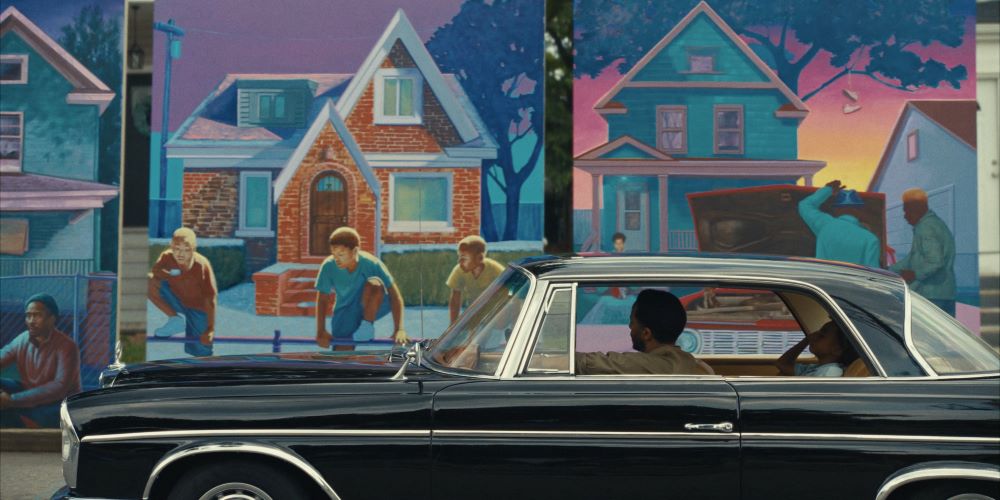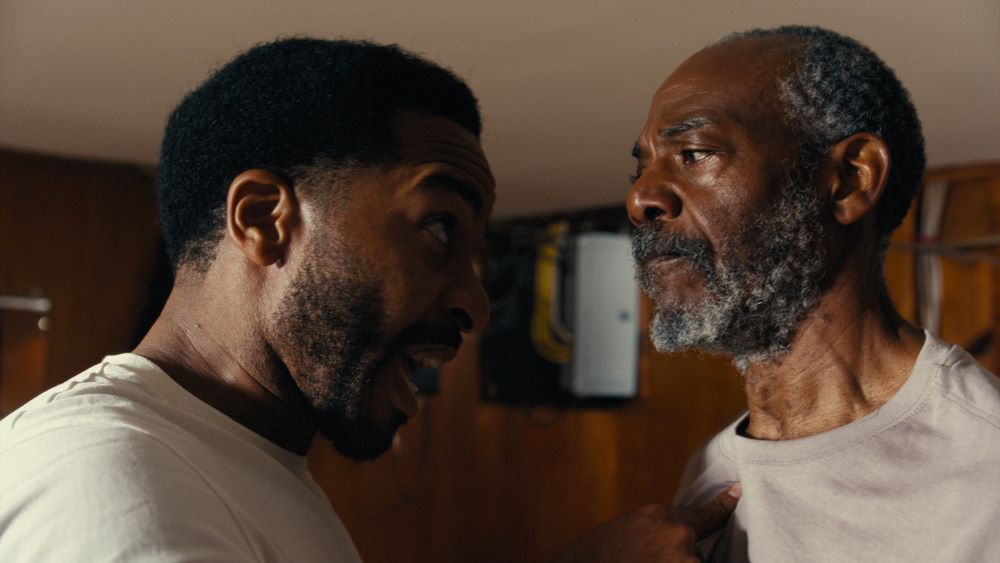
André Holland portrays Tarrell Rodin, a successful painter in "Exhibiting Forgiveness," streaming on Apple TV and Amazon Prime. (Courtesy of Roadside Attractions)
The best sociopolitical art, like Pablo Picasso's "Guernica" and Jean Michel Basquiat's "Riding with Death," has always revealed the inner state of its creator. This dichotomy between the artist's emotions and the art itself is at the heart of the conflict brewing within Tarrell Rodin (André Holland), the protagonist of Titus Kaphar's profoundly moving new film, "Exhibiting Forgiveness."
Sales of Tarrell's evocative paintings have provided a comfortable lifestyle for the artist and his family (Andra Day plays his wife, Aisha; Daniel Berrier, their son, Jermaine) — one that couldn't be further from the past that gives him night terrors. But while preparing to help his mother, Joyce (Aunjanue Ellis-Taylor), move closer to his family, Tarell faces the return of a Shakespearian figure in the form of his father, La'Ron (John Earl Jelks), seemingly back from the dead. After years of exile for the violence and pain he inflicted on his family due to substance abuse, the elderly man has come to make amends, in search of a forgiveness that won't come easily.
Inspired by Kaphar's relationship with his own father, "Exhibiting Forgiveness" is a raw meditation that forces us to ask the uncomfortable question: Who does forgiveness really serve?
Scripture is mentioned throughout the film, largely because Joyce is a woman of faith, and makes a straightforward case: "For if you forgive other people when they sin against you, your heavenly Father will also forgive you. But if you do not forgive others their sins, your Father will not forgive your sins" (Matthew 6:14-15).
But Tarrell has a counterpoint: Should Isaac have forgiven his father Abraham for being willing to sacrifice him to please a capricious God? Scripture might address Abraham's obedience, and even reward him for it, but what about Isaac's fear as he faced death under his father's hand?

André Holland, (left) and John Earl Jelks appear in "Exhibiting Forgiveness." (Courtesy of Roadside Attractions)
In his first feature-length movie, Kaphar explores questions that filmmakers have spent entire careers on. The character of Tarrell in "Exhibiting Forgiveness" rings as true as the children tasked with forgiving their parents in Ingmar Bergman's "Autumn Sonata" and Pedro Almodóvar's "Pain and Glory." As the greatest directors do, Kaphar forgoes didacticism and easy resolutions. Instead, he makes art for the wounded soul. (Notably, all the paintings that appear in the film are Kaphar's own work.)
While "Exhibiting Forgiveness" at times extends its reach to comment on politics, social concerns and racism (the scene between Tarrell and a white man purchasing his painting could merit an entire film review of its own), Kaphar tries his best to contain it to the emotions his characters are feeling — and those they desperately avoid feeling.
But this is not a film of emotional sadism. Instead, it invites us to look closer, to see beyond the cotton candy roofs in Tarrell's work and hold closely the gaze of the Black boy on the canvas instead.
Whether Tarrell (or Kaphar) is able to find it in his heart to forgive a man for past sins, the film teems with the grace of God. "Exhibiting Forgiveness" is not a film with easy answers — or any answers, for that matter — but I found myself grateful to Kaphar for bearing his humanity with such sincerity. I responded in the only way I could: I prayed for Kaphar, and for myself.
"Exhibiting Forgiveness" is now streaming on Apple TV and Amazon Prime.
Advertisement






